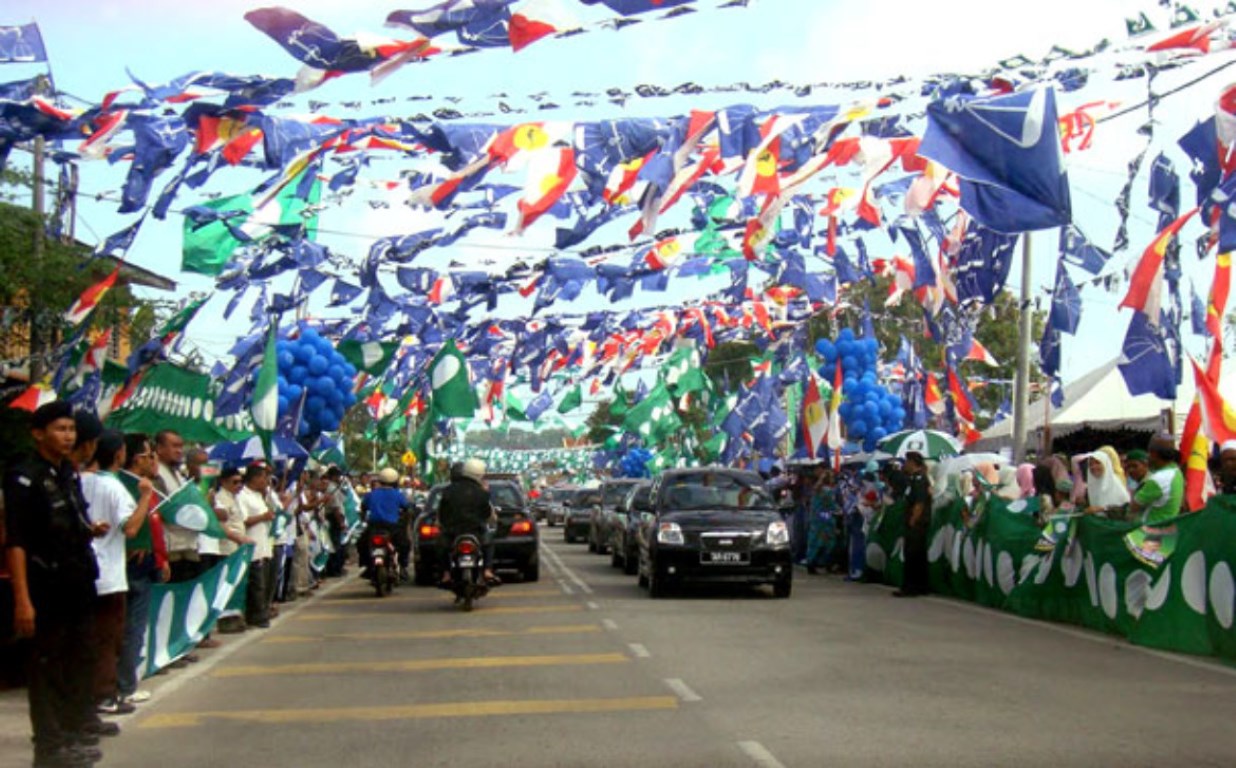Manipulated Malaysian Elections
March 29, 2018 | Expert Insights

Malaysian lawmakers voted to redraw the electoral boundaries angering protesters outside the parliament and displeasing the opposition. Critics say that this was a move to rig the upcoming elections to be held on August 24, 2018.
Background
Malaysia is a federal constitutional monarchy located in Southeast Asia. It consists of thirteen states and three federal territories. With a population of over 30 million, Malaysia is the 44th most populous country in the world. Its government system is closely modeled on the Westminster parliamentary system and the legal system is based on common law. The head of state is the king, known as the Yang di-Pertuan Agong. He is an elected monarch chosen from the hereditary rulers of the nine Malay states every five years. The head of government is the Prime Minister.
Elections in Malaysia are conducted at two levels: federal level and state level. Federal level elections are held for membership in the Dewan Rakyat, the lower house of Parliament, while state level elections are for membership in the various State Legislative Assemblies. The heads of executive branch at both the federal and state levels, the Prime Minister and Menteri Besar/Chief Ministers, respectively, are indirectly elected, by choosing a member of the majority party/coalition in respective legislatures.
The 14th Malaysian general election will elect members of the 14th Parliament of Malaysia on August 24, 2018. The 13th Parliament of Malaysia will automatically be dissolved on June 24, 2018. The Constitution of Malaysia requires that a general election to be held every five years unless it is dissolved earlier by the Yang di-Pertuan Agong or at the request of the Prime Minister.
Analysis
Malaysia's parliament has passed a controversial proposal requested by current Prime Minister Najib Razak to redraw electoral boundaries ahead of uncertainty in polls, after 129 voted for and 80 voted against it.
The opposition party as well as other critics said the proposed electoral boundaries would be favorable for Najib's ruling Barisan Nasional (BN) coalition by putting large numbers of opposition-leaning voters into fewer seats and dividing constituencies. The ruling party is presently facing its toughest polls. The party has ruled through a coalition alliance under BN for 60 uninterrupted years since the country declared independence from the British Empire.
"Assuming the voters go back to voting the same way (they did in the last polls), then BN would win eight more seats this round," predicted Wong Chin-Huat from Penang goverment-backed think-tank Penang Institute. "But we are talking about 5 million voters who did not vote the last round. So if they turn out to vote or if the existing voters change their voting patterns, then things are not fixed."
The last change seen in Malaysia’s electoral boundaries was in 2003, under the leadership of then-premier Mahathir Mohamad. He was also accused of manipulating the process in favor of the ruling coalition.
Beset by the 1Malaysia Development Berhad corruption scandals and protests since 2015, Najib has managed to remain in power by removing or buying off anyone investigating the scandal. The Malaysia Development Berhad is a strategic development company, wholly owned by the Government of Malaysia. The 1Malaysia Development Berhad scandal is an ongoing political scandal where Najib was accused of misusing over US$700 million from 1MDB to his personal bank accounts.
People from the opposition forces conducted protests in the capital of Kuala Lumpur and lobbied for stronger rule of law to curb corruption in politics. The opposition’s support is typically confined to urban areas, while the BN’s support is spread across rural areas. In the past, aside from restrictions on freedom of media, the BN has used a variety of tactics to manipulate the polls such as gerrymandering, intimidating the opposition, and jailing opponents to repress electoral competition.
The redrawing of electoral districts through “packing” opposition voters into a few seats or the “cracking” of opposition strongholds and absorbing them into adjoining constituencies has been beneficial for the BN. This redrawing of boundaries has led to large pro-opposition constituencies with more than 100,000 voters, while pro-BN constituencies are disproportionately small with 30 having fewer than 18,000 voters. This implies that the value of each vote changes across the country. It also requires opposition candidates needing more votes than their BN counterparts to get elected.
Assessment
Our assessment is that although Najib has denied any involvement in scandals or corruption, Malaysia’s elections are among the most manipulated in the world. Malaysia is known globally for its use of dirty politics and pre-electoral rigging to alter its results. Nevertheless, with inflation at an all-time high and high tax levels, unemployment and wages, Razak and the ruling coalition are likely to win the coming election.








Comments